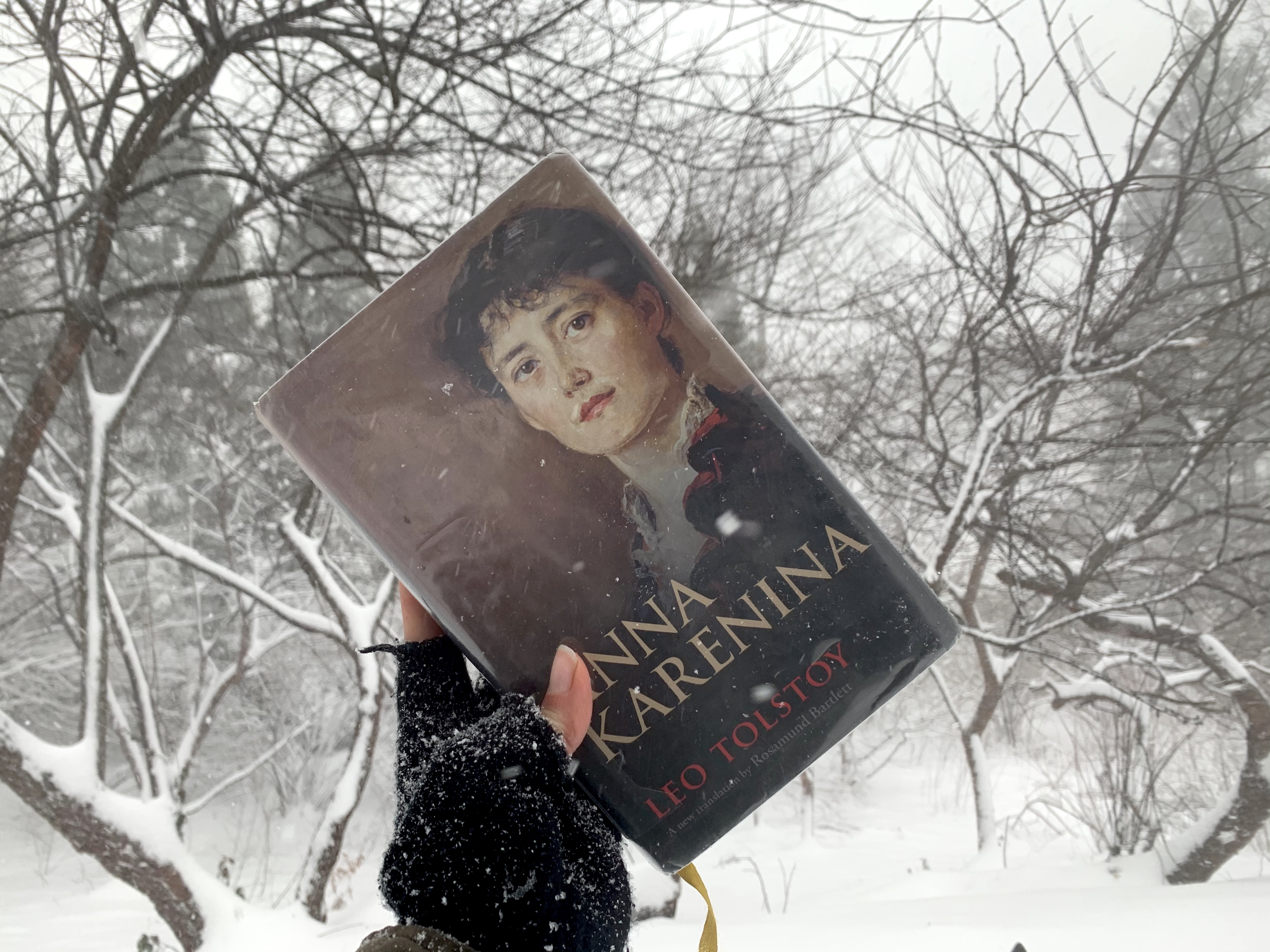For over a year, now, my dear friend Emily and I have been having a regular apéro chat. Often, we discuss what we’re currently reading. And as someone who’s possibly even more well-read than I am, I’m always looking for advice from Emily.
“I’m thinking about starting the Russians this winter,” I told her a few months ago.
“You say that every year,” she responded.
“I mean it this time. Where should I start?”
“Anna Karenina,” she said; it’s a testament to her patience with me that she always gives me this recommendation and has the kindness (or good manners) not to remind me that this is far from the first time. “It’s like a soap opera. But you’ll never remember who is who.”
God, it’s good to have friends who know you.
As part of my New Year’s not-really-resolutions, I made a list of twelve classics of literature I had yet to read and set the goal of reading them all this year. We’re firmly in March and I’ve read a grand total of one, so that’s how this goal is going. But I have indeed finally started the Russians with Anna Karenina, and here are my thoughts.
First of all, Emily was right: it is like a soap opera. The chapters are short (like… three pages short), there’s always drama, there are a billion cliffhangers, and people are positively extra when it comes to their emotions (particularly the titular Anna, who can go from 0 to 100 in the span of a page. Did Tolstoy put much stock in theories of female hysteria? Because that’s what this reads like sometimes.)
Clocking in at over 800 pages, this is the sort of book you say you’re “currently” reading for a long-ass time while actually taking breaks in the middle to devour three other novels. It’s not that it’s boring; on the contrary. 800 pages is just a long time to spend with over-dramatic Russians without the occasional palate cleanser (mine included Severance, Small Island, and The Mountains Sing).
It’s entertaining. I say this as someone who did my Master’s degree in 19th century literature, but sometimes these old, epic classics can feel like the green juice of books: you know it’s good for you; you want to like it, and so you sort of trick yourself into believing it’s what you want instead of, like, pancakes. But Anna Karenina is not a green juice. It’s like… a veggie omelet with secret cheese and bacon in it, or something. It’s very nice, and surprisingly so. (Enjoyability wise, I’d put it up there with Dickens, but it’s also very different. Dickens is exactly one mimosa, on the breakfast food scale of enjoyability. Fight me.)
I wrote my Master’s thesis on Les Misérables, so I spent a very long time with it, and over the course of that time, I discovered – both by way of my own observations and by way of actual scholarly evidence – that both Jean Valjean and Marius are based on Victor Hugo himself at various times in his life. The fact that my favorite character was Levin, who I later learned is based on Tolstoy himself, is frankly unsurprising, and I would have preferred if the book had been named Konstantin Levin, because then I would have understood where my allegiances were going to end up from the very beginning. #allmenaremarysue
I was still confusing Stepan Arkadyich and Sergey Ivanovich until the last appearance of the former on page like… 789. I wish Tolstoy had given one of them a non-S name.

the S name -lol- is there any other way t remember those names?